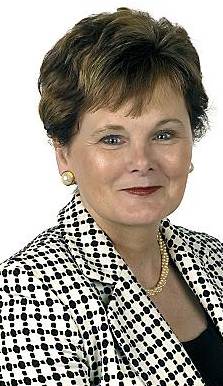Hospital winning war on superbugs
Reporter: BEATRIZ AYALA
Date published: 23 April 2009

FULL of praise . . . Marian Carroll
SUPERBUG infections at the Royal Oldham Hospital have dramatically reduced over the past year.
Patients developing MRSA dropped by 63 per cent between April, 2008, and March, 2009.
Staff recorded just seven cases in the past year compared to 19 the previous year (2007-08).
Patients developing clostridium difficile (C diff) diarrhoea infection also fell by 25 per cent.
Cases dropped from 201 in 2007-08 to 151 cases last year (2008-09).
Marian Carroll, director of nursing and director of infection prevention control at Pennine Acute Trust, said the drop was only possible thanks to the efforts of staff, patients and visitors.
She said: “This is excellent news for our patients and the public.
“It is also a fantastic achievement on the part of Trust clinicians who have responded so positively to the national imperative to reduce hospital acquired infections.
“It is moreover a ringing success for the wider health community where there has been a concerted effort by Trust and PCT colleagues to control and prevent infection.”
She added the prevention and control of MRSA and Healthcare Associated Infection (HCAI) remained priorities for the Trust.
Across the Pennine Acute Trust, which runs hospitals in Oldham, Rochdale, North Manchester and Bury, there were 34 cases of patients with MRSA last year (2008-09) compared with 77 from the previous year.
This was a 56 per cent reduction.
The figures for C diff over the same period were 472 this year and 529 last year, an 11 per cent reduction.
And more reductions are expected following the recent introduction of MRSA screening for elective admissions in line with national guidelines.
John Jesky, chairman, said: “Staff should be justifiably proud of this achievement which is the result of an enormous and concerted effort.
“The Trust remains committed to the reduction of infections as a priority.”
John Saxby, chief executive, said: “I would like to thank all staff for working together to achieve and sustain such a massive improvement in patient care.”
Most Viewed News Stories
- 1A new neighbourhood on the way for Oldham?
- 2Part of iconic Chadderton mill complex to be transformed into warehouses
- 3Blue Coat Head's delight on another memorable A Level results day
- 4‘New’ town hall due to open to public for first time after full cost of major refurb project...
- 5Crompton House students excel again on A Level results day




